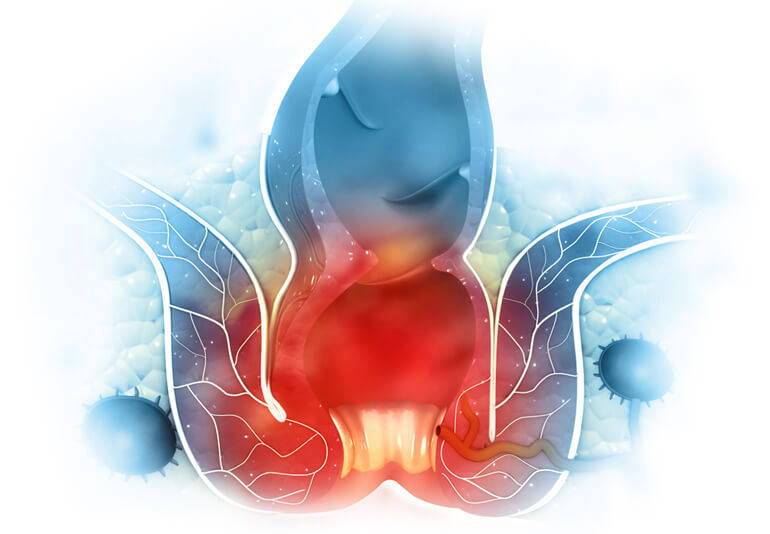
What are the symptoms of piles?
Any one or more or all are considered symptoms of piles.
- Bright red bleeding from anus, blood may streak the stools
- Tenderness or pain during the bowel movements
- Painful swelling or a lump near the anus
- Anal itching
- Mucous anal discharge
Seek medical advice if
- You are having rectal bleeding for the first time. It could be either due to hemorrhoids or other similar conditions colon polyps, colitis, crohn’s disease, or colorectal causes. Receiving an accurate diagnosis is essential.
- You have profuse Hemorrhoidal bleeding which can cause anemia.
What cause haemorrhoids?
One can be affected by haemorrhoids at any age, about 50% of people experience them at some point in their life but it is usually more common in elderly people and pregnant women. Researchers are not certain what causes haemorrhoids. It is likely that extreme abdominal pressure causes the veins to swell and become susceptible to irritation. The abdominal pressure can be caused by obesity, pregnancy , studying or sitting for long periods, straining in the toilet, coughing, sneezing, vomiting or holding your breath while straining to do physical labour. People who are on a diet rich in processed foods are at greater risk of haemorrhoids.
What are piles ? Or haemorrhoids ?
Piles or haemorrhoids are swollen blood vessels in and around the anus and rectum. These haemorrhoidal veins are located in the lowest part of the rectum and anus. Haemorrhoids can be internal or external. Internal haemorrhoids lie inside the rectum. Because of few pain sensing nerves, they don’t hurt and hence can go unnoticed unless they start to bleed. Unnoticed and neglected haemorrhoids may prolapsed and enlarge to protrude outside the anal sphincter. When such haemorrhoids rub against clothing or while sitting, acute pain or irritation takes place, causing great difficulty in passing the stool.
How are piles diagnosed ?
By a physical examination using a quos cope or a protoscope for thorough rectal examination. To investigate further into the anal canal a sigmoidscopy may be used, for the entire colon a colonoscopy may be suggested.